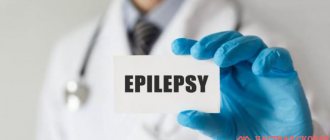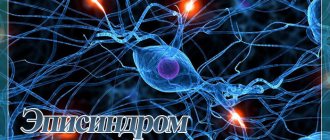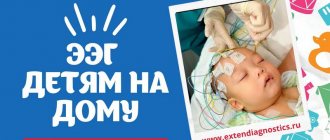To obtain a driver's license, every citizen of the Russian Federation must go through two stages: passing exams and a medical commission. The second stage is carried out using the standards of Order No. 302n. Epilepsy and a driver's license, judging by this order, may not always be compatible. But there are situations in which a person has the right to obtain a driving permit.
Classification of alcoholic epilepsy
The term "alcoholic epilepsy" is used to define several pathological conditions . Seizures are considered in different diagnostic categories.
- The most commonly diagnosed epileptic syndrome affects patients with chronic alcoholism. They are characterized by recurrent attacks, accompanied by mental and somatic disorders, hallucinations, and various illusions.
- Very often, in people who do not suffer from addiction, epileptic reactions occur against the background of one-time libations. As a rule, after a hangover the symptoms do not bother you.
- True alcoholic epilepsy is caused by long-term, more than ten years, consumption of alcoholic beverages. Attacks occur against the background of withdrawal syndrome (withdrawal) and very often develop into psychosis.
Independent epilepsy in persons with alcohol dependence can be provoked by neurophysiological characteristics of the brain. According to medical statistics, people with a tendency to have epileptic seizures are susceptible to mental disorders and depression. Seizures often cause injuries that occur after a sudden fall and impact with hard surfaces or objects.
Treatment
The diagnosis is made based on history and clinical symptoms. Successful treatment of alcoholic epilepsy is possible only with complete abstinence from alcohol-containing drinks, while attacks that occur during withdrawal symptoms (withdrawal) or binge drinking tend to completely stop. also increases , and a significant improvement in well-being is noted. To maintain the vital functions of the body, the patient is prescribed:
- infusion therapy;
- anticonvulsants;
- phenolbarbital.
Epileptic seizures are prevented by taking medications . Treatment tactics for alcohol addiction are determined by a narcologist. Coding and individual or group psychocorrection are effective. To overcome chronic drunkenness, the patient is sent to a rehabilitation center.
The consequences of alcoholic epilepsy are devastating to the body , so complete relief from the disease is not always possible. Despite this, if you seek medical help in a timely manner and follow medical recommendations, there is a high chance of rehabilitation.
First aid for alcoholic epilepsy
During convulsive seizures, the patient should be given assistance , and the actions should be clear and quick. It is necessary to support and lay down the person so that he does not suffer serious injuries if he falls. It is recommended to unbutton your outerwear, loosen your belt and turn your head to the side; such a measure will prevent suffocation from vomit.
After the attack, the patient is weakened, in some cases, disorientation and incoherent speech may occur. After rest, a visit to a neurologist and narcologist is necessary.
Convulsions
Seizures may be accompanied by convulsions or occur without them. The type and severity of attacks range from slight clouding of consciousness to status epilepticus.
Seizures without convulsions occur more often. They can be recognized by motor automatisms, severe dysphoria, and clouding of consciousness.
In the case of convulsive seizures, the tonic phase predominates. Absences (short shutdowns), psychosensory (ringing, flash) and psychomotor (changes in consciousness in combination with convulsions, motor automatisms) are observed less frequently.
Some types of seizures are impossible for the average person to recognize. For example, when a patient suddenly interrupts his speech, pronounces inappropriate words or phrases, becomes anxious and irritated for no reason. This is usually taken as a sign of withdrawal.
Macular degeneration
The macula is the central part of the retina, the light-sensitive tissue at the back of the eye. The retina processes all visual images. It is responsible for your ability to read, recognize faces, drive a car, and see colors clearly. Macular degeneration causes progressive damage to the macula, leading to loss of central vision. Peripheral vision is not affected. Main symptoms include:
- Difficulty with reading or any other activity requiring keen vision
- Distortion of lines
- Difficulty distinguishing faces
- Dark spots may appear before the eyes
A need for increased lighting, sensitivity to glare, decreased night vision, and poor color sensitivity may indicate that something is wrong. If you experience any of these symptoms, contact an eye care professional immediately.
Why should I even know about this disease?
Elena Morozova: This disease has a high social significance.
Firstly, it is quite dramatic (it is not for nothing that in most patients it is accompanied by anxiety syndrome and even clinical depression)
Secondly, even neurologists sometimes demonstrate insufficient knowledge about it - and this means that knowledge must be disseminated.
A “protocol” EEG, which takes 15 minutes, has no meaning. It is necessary to conduct the examination for at least 2 hours including a sleep episode. Photo: Chris Hope/wikipedia.org
Thirdly, patients with the disease are often stigmatized: such children are reluctant to be accepted into kindergartens, some schools insist on home schooling, and adult patients have problems at work. For example, a girl with epilepsy came to me and told me that her employer found out about the diagnosis (she had a seizure) and was now going to fire her. Interestingly, her employer also contacted me on the same day - he asked me to help fire her for medical reasons.
Historically, until about the 90s of the last century, epilepsy was officially classified as a field of psychiatry. Naturally, this left a certain imprint on the lives of patients; society had a unique view of it. Maybe that's where the stigma came from. Then epilepsy gradually moved into the section of neurology, but the social problems of patients have not yet gone away. And the fewer myths around this disease, the better.
Is it true that people with this disease cannot study at college or work in difficult jobs?
Elena Morozova: There are many unjustified myths and restrictions around epilepsy. Even patients with very mild forms of the disease are constantly given restrictions: they cannot undergo rehabilitation, they cannot study at a university, join the army, play sports, drive a car, work in a highly intellectual job... These are all myths. I am for these children to be as non-stigmatized as possible. With proper treatment, if the patient responds to therapy, he leads a completely normal life.
Sleep apnea
Sleep apnea is a common condition that causes breathing to stop or become difficult during sleep. When your sleep is interrupted by this condition, you will be tired during the day, making your condition dangerous for driving.
If you have sleep apnea, you are at higher risk for car accidents. However, with proper treatment, you should be able to drive safely. Lifestyle changes, medical breathing machines, and special surgeries are commonly used to treat sleep apnea. It is very important that you undergo a thorough course of treatment and follow your doctor's recommendations.
- Talk to your doctor to determine how to treat sleep apnea without affecting your ability to drive safely.
- You must be alert while driving. Try not to travel alone. Do this until you are confident that you are in complete control of your condition.
- If you are very tired or fall asleep at work or at home, you should not drive as it is unsafe for you and others on the road.
Glaucoma
Glaucoma is an eye disease in which the optic nerve at the back of the eye is slowly destroyed. There are no warning signs and there is usually no pain associated with glaucoma. Vision loss occurs gradually, and much of your peripheral vision may be lost before you are given a definitive diagnosis. Drivers with poor peripheral vision are at greater risk of collision, especially when entering or exiting traffic or when overtaking. You may also not see pedestrians entering the road.
Features of the law restricting the right
There is a whole list of diseases that serve as a contraindication to obtaining a driver's license. A person with epilepsy should also become familiar with them, since concomitant disorders can completely prohibit driving:
- partial but severe loss of hearing or vision, determined by a medical commission;
- eye diseases, which may be accompanied by partial and temporary loss of vision, visual impairment, hallucinations;
- absence or temporary impairment of motor abilities of the arms or legs;
- some pathologies of the cardiovascular system;
- diseases of the endocrine system that can cause danger on the road;
- persistent alcoholism or drug addiction;
- gynecological diseases in which it is impossible to remain in a sitting position for a long time, or complications may arise right on the road.
The full list can be studied in the law, or checked with the medical commission. If a person has received his license and is diagnosed with epilepsy in stable remission, he must be attentive to his health from now on. Often attacks are provoked by lack of rest and strong emotions. When driving, you should not get carried away with long trips , which lead to the fact that a person sleeps 3-4 hours a day.
Obtaining a driver's license if you have epilepsy is possible, but you should be careful about your health and assess the risks. Bypassing official rules and requirements can lead to disastrous consequences on the roads.
Arthritis
Having arthritis can make your joints swollen and stiff, which can limit the movement of your shoulders, arms, head and neck. It will be difficult for you to perform ordinary actions when driving a car: changing gears, steering the steering wheel and pressing the pedals. As a result, arthritis can make driving difficult. To be able to drive with this condition, you need to be constantly checked by a doctor, monitor your condition and follow all medical instructions.
Main reasons
The pathological process is triggered by ethanol breakdown products - toxins and free radicals. The relationship between seizures and alcohol intoxication is complex; epilepsy is often combined with other complications of chronic intoxication, and also occurs against the background of various pathological conditions. The causes of alcoholic epilepsy are varied, but the main factor is toxic damage to the central nervous system. Among the provoking conditions are:
- hereditary predisposition;
- head injuries;
- cerebrovascular accidents;
- progressive atherosclerosis;
- infectious intracranial lesions and neoplasms.
The risks increase significantly during periods of prolonged drinking bouts, consumption of counterfeit products or alcohol-containing liquids.
Monocular vision
If you have been diagnosed with monocular vision, you must provide a medical certificate from an ophthalmologist certifying that you meet the required standards to drive. It must be accompanied by the results of all ophthalmic tests. If you drive a personal vehicle, you may be issued a conditional license, subject to review every two years. If you drive a commercial vehicle (trucks, public transport, taxis), you will have to be tested every year. In all cases, the extent of visual field loss and visual acuity will be considered by traffic authorities before a conditional license is issued.
Exceptions allowing driving
For the second group of drivers (category D), there is a strict ban on obtaining a driver's license if you have epilepsy. There are broad exceptions for category A, B and C drivers:
- the patient undergoes constant medical monitoring, and it is officially established that there have been no attacks for more than 5 years;
- a regular medical certificate is valid for 2 years for drivers; if the patient has epilepsy, the regularity of re-examination is prescribed by the doctor;
- the neurologist issues a conclusion on the suitability of the potential driver to drive a vehicle with epilepsy;
- more than 6 months must have passed since the last attack without additional symptoms of epilepsy during this period;
- it must be medically determined that epilepsy cannot cause a seizure while driving;
- It is also considered an indication that attacks can occur, but only in sleep;
- the patient does not experience loss of consciousness or acute limitation of motor functions during an epileptic seizure;
- the factors causing epilepsy were surgically eliminated;
- After stopping the drugs, there was a relapse, but the driver resumed treatment.
In the latter case, the person is banned from driving for 3 months. Only 3 factors allow you to obtain a license for category D epilepsy, and the most important of them is the absence of seizures for 10 years. The absence of drug treatment is also considered an important condition for this . That is, it is necessary to confirm that anticonvulsants were not taken during remission.
An indication may also be that attacks occur solely due to provoking factors, and driving or nervous tension associated with it are not included in this risk group. Also, a driver can get a license if a seizure has occurred only once in the last 5 years.
The decision on admission to driving is made by the attending physician, and in some cases a consultation is held.
Each case is considered individually. If a permit is issued, the person is required to carry with him at all times a medical certificate confirming his fitness to drive. The medical commission has the right to determine which category the patient will receive.
Symptoms
The symptoms of alcoholic epilepsy are similar to classic epileptic symptoms:
- • loss of consciousness;
- • convulsions;
- • pale skin, blue in the area of the nasolabial triangle;
- • rolled pupils;
- • foam, vomiting;
- • uncontrolled movements.
Before an attack of alcoholic epilepsy, the following symptoms are observed. The person becomes nervous, overexcited, sleeps poorly, reacts aggressively to harmless things, and speaks incoherently.
When the attack passes, the patient appears depressed, tired and quickly falls asleep. Hallucinations and nightmares unique to this disease may occur.
Sleep disturbances, delirium, hallucinations after seizures manifest themselves more intensely, including after quitting binge drinking. The brain begins to deteriorate due to prolonged ethanol poisoning. And in the future the process continues without intoxication.







